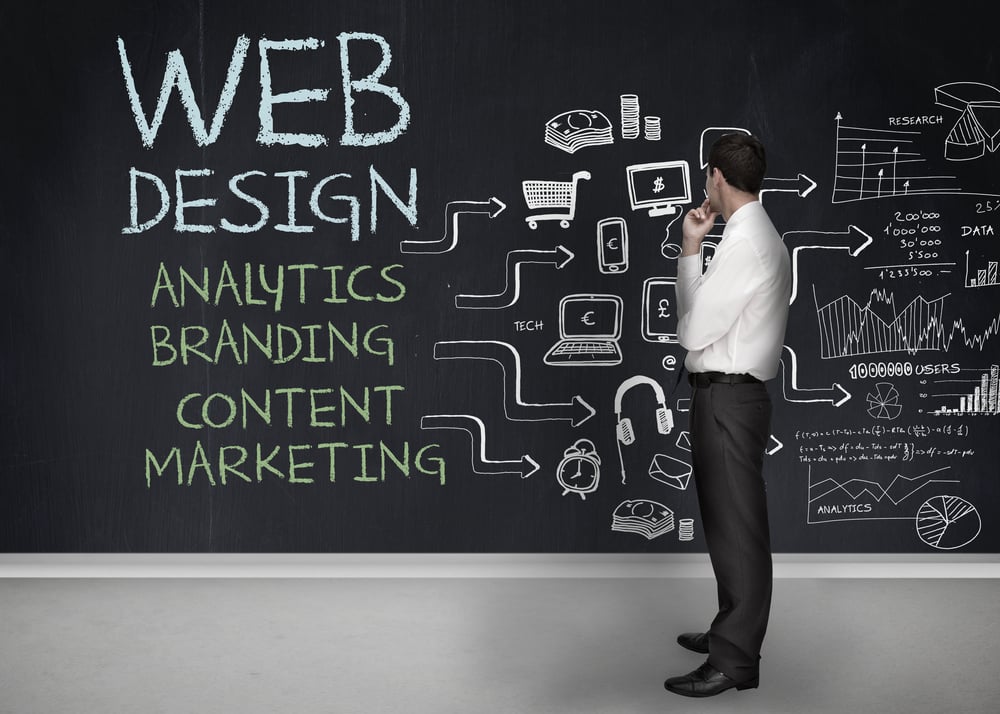Your website is the first digital impression from your company and you want to make sure it’s a great one. It should reflect everything you want potential customers to know and remember about your business. To marketers and other business owners who have been around for a while, this is nothing new. Successful businesses are always trying to improve the quality of their websites to meet the needs of their visitors.People are visiting your website because they want to learn something. You want to ensure that they are finding what they are looking for quickly and with ease. You may have the most amazing business model and offer extraordinary customer service, but with a poorly functioning website, you could miss out on a significant amount of business and ultimately make a bad impression.
The quality of your website is critical. Since it’s likely that your competitors have an incredible website, expectations are high, and you must at least meet the bar, if not exceed it. If you want to stay in the game, you’ve got to have a website that makes it easy for your users to browse your products and services, make purchases, and to interact with your business.
So, what makes a great website? How can you set your website apart from the rest? We’ve put together some key website trends to focus on for success/
Top 10 Website Trends
1. Responsive Design
The concept of using responsive design is not new. Since the Google update known as “Mobilegeddon” back of 2015, everyone has been hustling to upgrade their websites so that they are easily viewable and usable regardless of the device it is being viewed on (mobile, tablet, desktop).
This will continue to be a basic requirement of a great website. With new and improved mobile devices coming to the market on a regular basis, having a responsive website design is a must.
2. Minimalism
Many businesses are taking web design back to the basics with minimalistic designs and layouts. Websites are featuring fewer pages, with simpler designs and more blank space.
Some websites are also implementing what’s referred to as “Flat Design”. Flat web design uses two-dimensional/flat images which are aesthetically pleasing to look at, in combination with lots of open space, and bright colors. Flat design also meets the requirements of a responsive web design.
3. User-Friendly
Usability has always been of key importance in a successful website. Websites with an intuitive design, and with images and aspects that are pleasing to the eye are going to attract more customers than those without these features.
A simple, intuitive, and functional navigation is another important feature to focus on. If customers can’t easily make their way around your site, they aren’t likely to stay long.
The speed at which your pages load also have a strong impact on users in the coming year. Quickly loading pages and simple ways to get to specific information will be critical in setting your website apart from the competition.
4. Personalized User Experience
Personalized user experience web design is the norm. Rather than everyone receiving the same experience when visiting a particular website, a personalized user experience design allows for the content and experience to be designed specifically for a particular user.
The best part about websites that offer a personalized user experience, is that they are typically able to adapt to the visitor’s interests and needs without having to do much at all.
5. Extraordinary Content
Websites that provide visitors with useful information in a variety of formats, such as video and images vs. text when possible, will have greater success than those that don’t meet the needs of today’s website viewers.
Marketing automation will also continue to evolve, and many websites will incorporate customized landing pages, banner ads and other promotions to supplement email campaigns. The traditional newsletter or simple email marketing campaign will likely not be enough to capture new customers.
6. Bold Colors
In the past, bright and bold colors on websites was sometimes perceived as childish or unprofessional, depending of course upon the industry of the business. However, websites with vibrant colors have become more popular and more acceptable in recent years.

When viewed in high definition, bold colors can have a powerful impact on the visitors. And, in the case of a flat design website, bright colors can make all the difference.
7. Videos
Video will continue to be important especially to engage visitors and tell your brand story.
8. Card-Based Design
You’ll see a lot more websites using card-based design. A benefit of this type of design is that the card design is ideal for users with mobile devices and varying screen sizes, because they can be easily adjusted to each screen.
Card-based design also goes along with the theme of simplicity and minimalism we discussed above. By providing viewers with short and simple bursts of information that can easily be digested, cards provide an easy way to promote user action, which is usually to click through to a landing page or more in-depth information on a particular topic.
9. Wall-to-Wall Site Strips
Wall-to-wall site strips provide a better user experience by dividing website layouts into several rectangular sections. These full-width image strips can be different lengths, and serve to break the site into clear sections of content. Not only are they pleasing to look at, but they also function as a simple and functional design aspect that breaks up content into more digestible bites.
10. Unusual/Lack of Navigation
Traditional navigation menus are located at the top or side of a website page. Recently, however, more and more websites have been experimenting with unique navigation menus, and in some cases there is no navigation “menu”, but rather a different way of directing or “navigating” the user towards the information they’re looking for.
Another emerging and increasing popular web design trend is the use of ghost buttons. They are transparent buttons that blend in with the background, for a cleaner look. Again, this design trend goes well with the flat and minimalistic designs that seem to be gaining popularity.
To stay relevant in today’s world of web design, it’s worth investing in the latest website technology and functionality. You don’t have to do it all, but implementing at least a few of the above trends will have you well on your way to presenting a great website in the years to come



